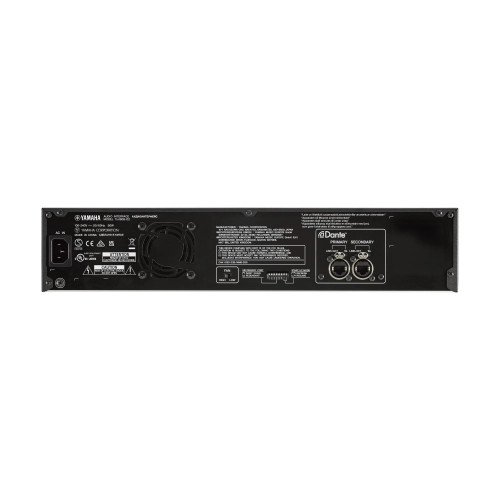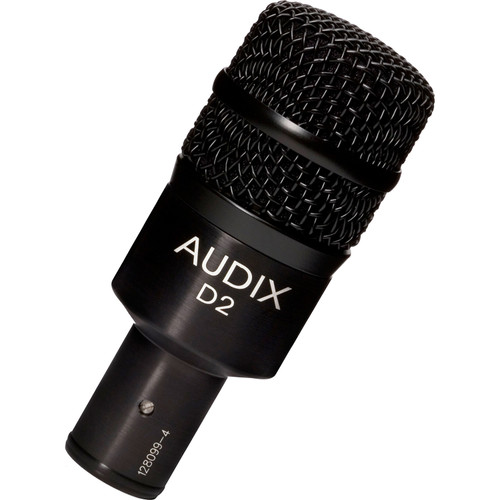Overview
The Yamaha Rio3224-D2 and Rio1608-D2 are high-performance I/O Rack units with built-in Dante audio networking. Designed and manufactured to achieve outstanding sonic transparency in keeping with Yamaha’s “natural sound” philosophy, they play a vital role in supporting the performance capabilities of the associated console, offer extensive freedom for placement and multi-unit combinations, and allow redundancy for high reliability. The Rio3224-D2 and Rio1608-D2 are not only standard components of the RIVAGE PM7 Digital Mixing System, but are also fully compatible with CL and QL series digital mixing consoles, offering excellent audio and operational performance that makes the most of Dante networking potential.
Features
RIVAGE PM Series Audio Quality Boosts Creative Freedom
Yamaha’s unwavering approach to live sound reinforcement is wholly inherited in the Rio3224-D2 and Rio1608-D2 I/O Racks, allowing the on-stage sound to be cleanly captured and then shaped as required by the engineer. Analog circuitry developed for the first-generation Rio3224-D and Rio1608-D I/O Racks has been revised to deliver sound that represents another evolution in Yamaha’s “natural sound” concept, and overall performance that is truly worthy of “RIVAGE PM series” status.
Dante Network Protocol for Flexible System Setup
Audinate’s Dante network protocol offers extensive flexibility for system setup and configuration. With Dante, you have the freedom to use just about any combination of devices that suits the application, and to position those devices wherever they will be most convenient. It also allows for redundancy that can keep the system running even if a problem occurs. Then there’s the Dante Controller software application for easy, flexible patching of devices on the network.
In addition to supporting the AES67 standard for audio over IP interoperability, Dante offers other valuable facilities such as Dante Device Lock to prevent unauthorized operation, and the Dante Domain Manager for efficient user authentication and role-based security.
Dual Redundant Power Supplies and Improved, Quiet Airflow
Power failure is a major risk when operating any audio I/O device. Both the Rio3224-D2 and Rio1608-D2 I/O Racks include dual power supply units to reduce the chance that power loss will result in downtime during a show. If a problem occurs with one power source, operation will continue unaffected as long as the second power source is active. Internal airflow has been redesigned too, reducing fan noise for notably quieter operation.
Character Displays and Control Improvements
Another Rio3224-D2 and Rio1608-D2 refinement is the provision of character/icon displays rather than basic LED indicators, allowing quick, easy confirmation of Dante settings as well as metering, gain, high-pass filters, phantom power, and more. It is also possible to edit gain, high-pass filters, and phantom power settings directly from the I/O Rack interface, and even lock them if required. Remote operation from the R Remote software application is also possible.
Digital Compensation for Analog Gain Changes
When multiple consoles are connected to one I/O rack and operators at those consoles make analog gain changes, the results can be unpredictable and usually undesirable. The Rio3224-D2 and Rio1608-D2 feature a Gain Compensation function that automatically adjusts gain at the digital stage to compensate for analog gain changes, ensuring that sound is sent to the network at a constant level.
Specifications
Type: Stage Box Remote Interface
Compatibility: Rivage PM7 Mixing System, CL Digital Mixer, QL Digital Mixer
Channels: 32 x 16 (analog), 32 x 24 (including AES/EBU)
Inputs - Mic Preamps: 32 x XLR
Phantom Power: Yes (remote on/off)
Outputs - Main: 16 x XLR (line out)
Outputs - Digital: 4 x XLR (AES/EBU)
Data I/O: 2 x Ethernet (Dante Primary, Secondary)
Software: Dante Controller, R Remote Application
Rackmountable: Yes, 5U
Power Source: Dual Redundant Power Supply, 2 x Standard IEC AC inputs
Height: 8.6"
Depth: 14.2"
Width: 18.9"
Weight: 27.3 lbs.











